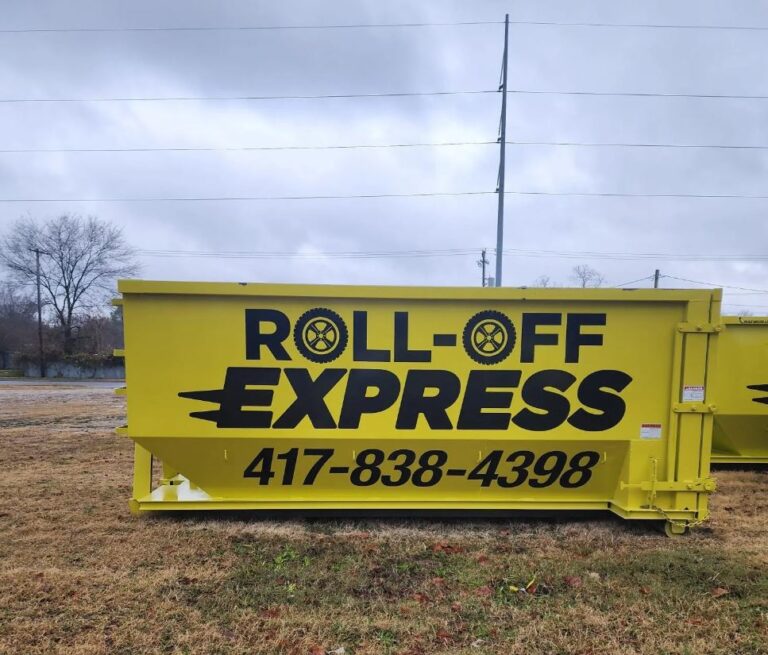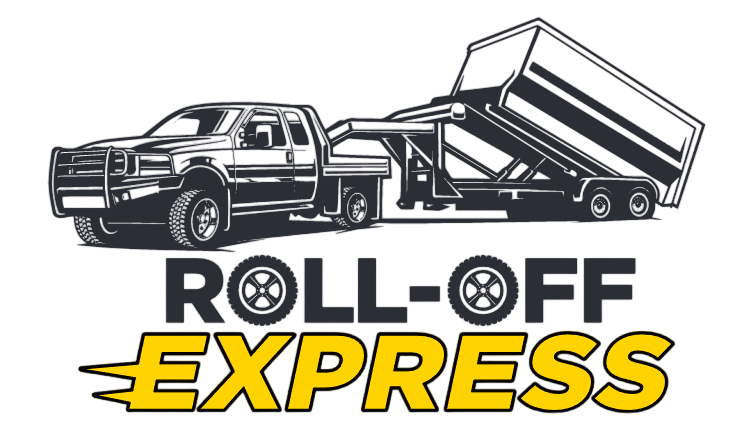

In 2024, understanding the spectrum of dumpster rentals is pivotal for effective waste management in various settings, including commercial projects, home renovations, and extensive cleanups. This comprehensive guide delves into the different styles of dumpsters, their applications, and strategies to select the ideal one for your specific needs.
Homeowners and property managers find residential dumpsters indispensable, offering an adaptable and ideal solution for an array of home projects. These dumpsters come in several styles such as roll-off, bag, and trailer dumpsters, catering to a broad spectrum of requirements, from minor home cleanups to major renovation tasks.
Roll-off dumpsters, familiar sights at construction and demolition sites, are renowned for their substantial capacity and open-top design. Available in various cubic yard sizes, they are perfectly suited for handling significant waste volumes, including construction debris and bulky items. Their design facilitates effortless loading, making them ideal for both residential and commercial endeavors, such as demolition or a major cleanout. Special roll-off trucks transport these containers, making them versatile for a wide range of projects.
These dumpsters are obtainable in diverse sizes, commonly from 10-yard to 40-yard. The smaller sizes are suitable for projects like garage cleanouts, while the larger ones are tailored for extensive construction tasks.
When selecting a rental service, consider aspects like pricing, rental duration, and policies on excess charges. Evaluating the rental company’s customer service and reliability is equally important.
Be mindful of local regulations related to dumpster placement and necessary permits, especially when positioning the dumpster on public property.
Typically, hazardous substances, flammable liquids, and toxic materials are not allowed in roll-off dumpsters. It’s crucial to confirm the specific list of prohibited items with the rental service.
Don’t risk costly mistakes or legal issues! Before you load your residential dumpster, make sure you’re informed. Visit this essential blog, ‘What Can You Put in a Dumpster?’ now, to avoid potential penalties or hazardous situations. Your smart disposal decisions start here!
Trailer dumpsters, unlike roll-off dumpsters, are mobile as they attach to trailers and can be towed. This mobility makes them ideal for projects requiring the relocation of the dumpster across different areas within a job site, applicable in large residential settings or commercial projects like gas stations or retail stores. They are also suitable for locations where standard roll-off dumpsters may face access issues, such as narrow roads or crowded urban environments.
Their primary advantage is the ease of relocation, particularly beneficial for projects extending over multiple areas or in locations with limited access.
Trailer dumpsters are excellent for urban construction projects, home remodeling, and events where managing waste in multiple locations is necessary.
Inquire about rental terms, potential extra fees for relocation, and weight restrictions when renting a trailer dumpster.
For effective loading, evenly distribute waste and prevent overfilling to avoid spillage during transit.
Bag dumpsters, or “bagsters,” offer a flexible and temporary solution for waste disposal. These robust bags can accommodate up to 3 cubic yards of waste, making them perfect for smaller home projects like a garage or basement cleanout and yard work. Their advantage lies in their convenience; they are available at local stores, can be filled as needed, and are then collected by waste management companies.
Start by laying the bag flat in a clear area, fill it to the designated line with heavier items at the bottom, and avoid overfilling to facilitate pickup.
Once the bag is full, arrange a collection with the waste management service, ensuring the bag is easily accessible and not obstructed.
While ideal for lighter materials, bag dumpsters are not suited for heavy debris like bricks or large soil volumes. Keep weight restrictions in mind.
Due to their size and convenience, bag dumpsters are perfect for small-scale projects, particularly in settings with limited space for traditional dumpsters.
Commercial dumpsters are essential for both small businesses and large corporations. These dumpsters come in two primary types: front load and rear load, each designed for different waste management needs.
These dumpsters are a common choice for businesses like shopping centers, restaurants, and apartment complexes. Designed for regular waste generation, front-load dumpsters are emptied by garbage trucks that lift them over the truck’s front. They come in various sizes and often feature lids to contain odors and deter pests.
Businesses can set a regular pickup schedule based on their waste production, from multiple times a week to bi-weekly.
Options include lockable lids, recycling compartments, and a range of sizes from 2 to 8 cubic yards.
Prices vary depending on the dumpster size, pickup frequency, and additional services like recycling or organic waste disposal.
Regular cleaning of the dumpster area and ensuring waste is properly bagged can help maintain cleanliness and control odors.
Rear-load dumpsters, similar in function to front-load dumpsters, are emptied from the back, making them suitable for locations with limited space, such as alleys or small parking lots. Their design allows for easier manual loading, and they are often chosen by small businesses and residential areas.
Ideal for areas with spatial limitations, ensure sufficient room for safe and efficient collection.
Generally more affordable than front-load dumpsters and can fit in tighter spaces, though they may have smaller capacity limits.
Commonly used by small restaurants, retail stores, and businesses in urban areas with restricted space.
Keep the dumpster’s surroundings clear and avoid overloading to ensure safe collection and prevent accidents.
This section details the distinct characteristics of roll-off and front-load dumpsters, focusing on their design, utility, and suitability for various waste management tasks. Roll-off dumpsters are larger and more appropriate for temporary, large projects like construction or major cleanups, whereas front-load dumpsters are smaller and better suited for regular, ongoing waste disposal for businesses and residential complexes.
In construction contexts, certain dumpster types are more appropriate due to the nature of the work and the generated waste.
Construction dumpsters, a variant of roll-off dumpsters, are designed for heavy loads and robust materials typical on construction sites. They are indispensable for disposing of construction materials like lumber, metal, and concrete. Available in several sizes, including 10-yard, 20-yard, and 30-yard options, they serve varying scales of construction projects.
Residential dumpster rentals are tailored for home renovations and yard debris disposal. These dumpsters, comparable in size to construction dumpsters, are ideal for residential projects like home cleanouts and yard waste management. They are available in smaller sizes, fitting for limited spaces like home driveways or small parking areas.
Concrete dumpsters are specialized roll-off containers designed specifically for concrete and other heavy, inert materials disposal. They are crucial for projects involving concrete demolition, concrete waste removal, or construction. Due to the heavy nature of concrete, these dumpsters are sturdier and often come in smaller sizes, like 10-yard or 20-yard, to adhere to weight limits and ensure safe transport. They are essential for sidewalk repairs, driveway replacements, or significant construction work involving substantial concrete waste.
Ensure accuracy and avoid overloading by calculating the weight of your concrete. Utilize our recommended concrete weight calculator for precise measurements – a crucial step for safe and efficient disposal!
Selecting the appropriate dumpster size for your project is a critical aspect of efficient waste management. This decision largely hinges on estimating the volume of waste, measured in cubic yards, as dumpster sizes are categorized by this measurement.
Start by gauging the amount of waste your project will generate. A cubic yard is a volume measure of 3 feet in length, width, and height. For perspective, a standard kitchen stove occupies about 1 cubic yard.
The project’s scale is a determining factor. Smaller projects like home cleanouts, garage cleanups, or minor renovations might need from a 10-yard dumpster to 20-yard dumpster. 20-yard dumpsters are the most common type. In contrast, larger projects such as commercial renovations or major construction usually require bigger dumpsters, typically from 20 to 40 cubic yards or more.
The nature of the waste also influences the size choice. Heavier materials like concrete or soil may necessitate a sturdier dumpster with a higher weight limit, despite a smaller volume.
Stay informed about local regulations concerning dumpster size and placement. Some areas have restrictions on the size of dumpsters allowed on public property or residential streets.
Engage with dumpster rental companies, providing details about your project. Their experience can offer valuable advice, aiding in the selection of the right size dumpster.
Choosing a too-small dumpster might require an additional one, while a too-large choice could result in paying for unused space. Be aware of potential overage fees if the dumpster exceeds its maximum capacity.
Make sure you get the right dumpster size for your project by precisely estimating your waste in cubic yards and weighing these key factors. This not only guarantees efficient waste management but also ensures cost-effectiveness. Dive deeper into making the best choice for your needs – check out our blog, ‘Choosing the Right Dumpster Size for Projects,’ for expert guidance and helpful tips!
The 2024 landscape of dumpster rentals demands a thorough understanding of the different types available. This knowledge is critical for effective waste management across various scenarios, including commercial endeavors, home renovations, and large-scale cleanups.
Residential dumpsters, encompassing roll-off, bag, and trailer types, offer versatile solutions for a myriad of home projects. Their adaptability accommodates various scales and types of waste, making them invaluable for homeowners and property managers alike.
Roll-off dumpsters, prominent in construction and extensive cleanout projects, are praised for their large capacity. Available in a range of sizes, they are apt for handling substantial waste amounts, thus serving both residential and commercial purposes effectively.
Trailer dumpsters stand out with their unique mobility feature, making them perfect for projects that necessitate waste management at multiple sites or in locations with restricted space.
Bag dumpsters, offering a practical solution for smaller projects, highlight convenience. They are easy to purchase, fill, and collect, particularly fitting for residential areas where space is limited.
The choice between front load and rear load dumpsters for commercial use is influenced by factors such as the volume of waste, frequency of pickup, and space constraints. Each type caters to specific business requirements.
Estimating waste volume in cubic yards is crucial for choosing the right dumpster size. This estimation is key to ensuring an appropriately sized dumpster is selected for projects, whether small-scale home renovations or large commercial undertakings.
Awareness of local regulations concerning dumpster placement is essential. Consulting with rental companies can provide expert advice and clarity on any additional charges or fees.
In construction, specific dumpsters like concrete dumpsters are vital for managing heavy, inert materials. Selecting the right type based on the waste material is essential for efficient waste management in construction scenarios.
By absorbing these key insights, individuals and businesses can more effectively navigate the complexities of dumpster rentals in 2024, ensuring the selection of the most suitable type and size of dumpster for their specific waste management requirements.

Roll-Off Express | LETS TALK TRASH | Dumpster Rentals